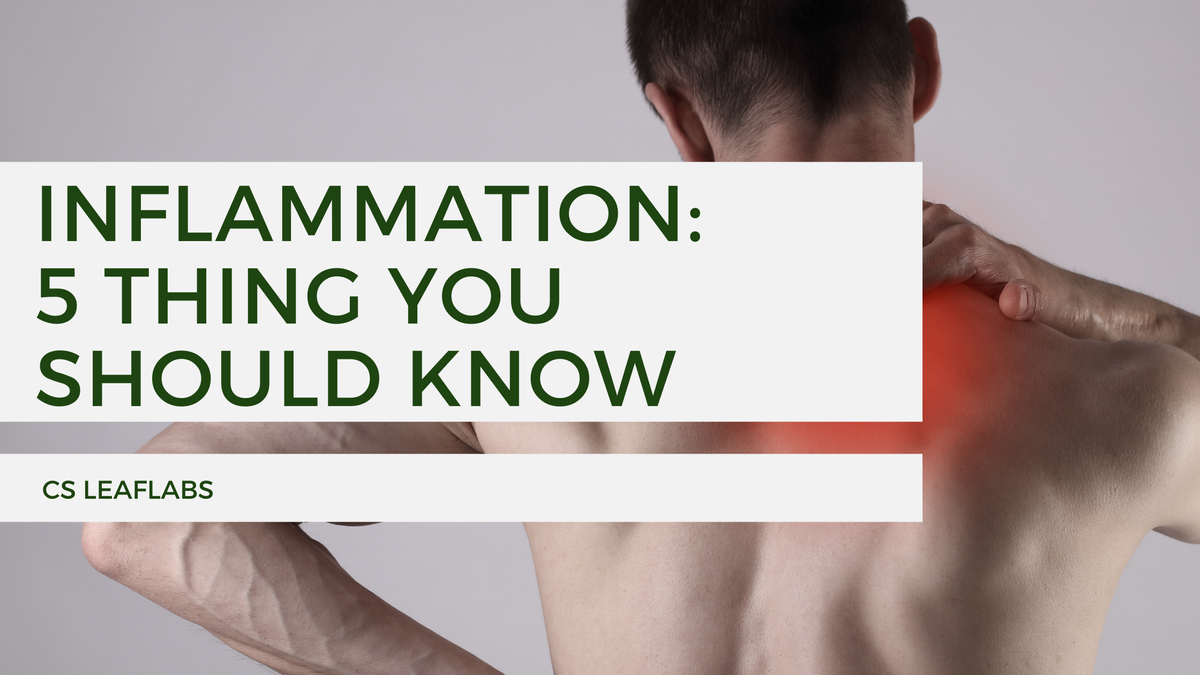
In this current pandemic, inflammation has become the major factor of chronic complication for people infected by COVID-19.
COVID-19 is distinguished by lung inflammation and respiratory failure induced by an overactive immune response.
Can you imagine if your current situation is already causing inflammation as a result of one of the chronic diseases, and how your body will react when COVID-19 hits the organs?
Chronically ill people frequently have greater amounts of inflammatory markers in their systems. Numerous studies suggest that stress, a physiologic reaction to feeling challenged or threatened, causes or worsens medical problems such as depression, cardiovascular disease, neurodegenerative disorders, and cancer.
1. What is inflammation?
Inflammation is part of the body's defense mechanism. It is the process by which the immune system recognizes and removes harmful and foreign stimuli and begins the healing process.Inflammation can be either acute or chronic.
Acute inflammation:
- Blood vessels expand.
- Higher blood flow
- Swelling
- Redness
- Increased temperature
- Joint stiffness or muscle stiffness
- Loss of energy
- Tiredness
- Shivering
- Headache
- Loss of appetite
Chronic inflammation can continue for months or years. It either has or may have links to various diseases!
- Diabetes
- Cardiovascular diseases
- Neurological Diseases
- Autoimmune diseases
- Rheumatoid Arthritis
- Cancer
- Lupus
- Chronic fatigue syndrome
2. What is the main cause of inflammation in the body?
There are four sources of inflammation which are biological, chemical, physical, and immune reactions.
- Biological: Bacteria, Virus and their toxin, and Fungi
- Chemical: Poison and toxins
- Physical: Trauma causing tissue injury
- Immune response: Antigen-antibody reaction or autoimmune diseases
In addition, overly processed foods containing refined sugars and carbohydrates, saturated or trans fats, and artificial additives can trigger inflammation in our bodies.
3. What is anti-inflammatory?
Anti-inflammatory is the property of a substance or treatment that reduces inflammation or swelling.
4. Is anti-inflammatory good?
The less inflamed we are, the greater our prospects of long-term health.
Here is the list of the benefits of anti-inflammatory:
- Recovery in athletic training
- Heart protection
- Improved quality of life for people with multiple sclerosis
- Optimize weight
- Reduce inflammation
- Slow cell aging and promote longevity
- Improve energy levels, cognitive abilities (brain function), and mood
- Reduce the risk of chronic conditions
5. How can I reduce inflammation fast naturally?
Much research has generated anti-inflammatory drugs that can be purchased over the counter in this modern new age, but you must ensure that you take it with the recommended dosage and for a shorter period of time. This is related to the negative effects of synthetic medications.
Alternatively, you can explore several ways to heal your body naturally from inflammation problems such as:
Consume anti-inflammatory food
Avoid inflammatory foods
Manage your blood sugar level
Spent time to exercise
Manage your weight
Manage stress.
Here is a list of medicinal plants that have traditionally been used to treat inflammation:
Reference:
https://thebiologynotes.com/inflammation-definition-types-causes-treatment/
https://universityhealthnews.com/daily/nutrition/anti-inflammatory-foods/
